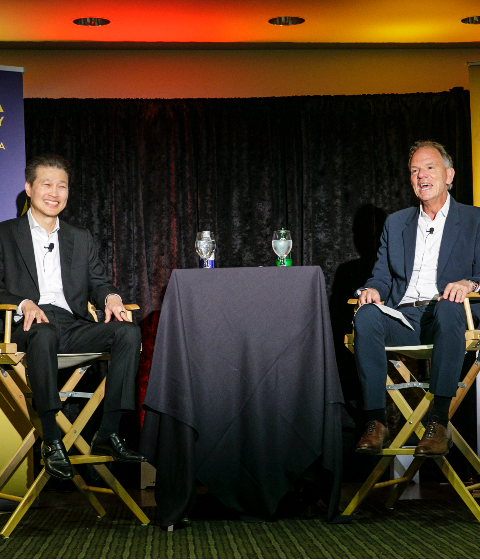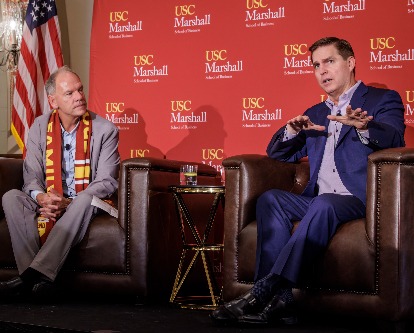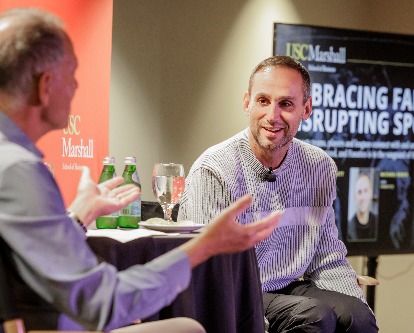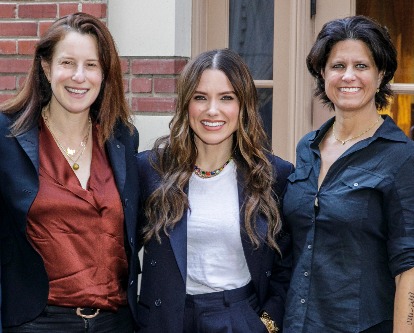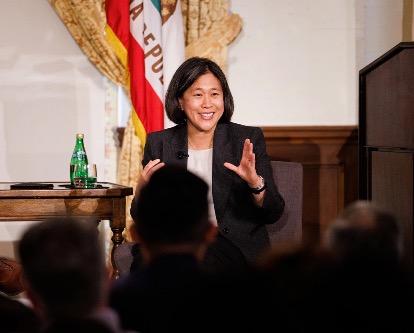The first Dean’s Dialogue of the school year attracted a large audience at the Davidson Continuing Education Center to hear Dean Geoffrey Garrett’s conversation with Dominic Ng, chairman and CEO of the East West Bank.
Ng has one of the most impressive resumés in the business world. Under his 30+ years leadership, East West Bank's holdings have skyrocketed from $600 million in assets to over $62 billion to become the largest publicly listed independent bank headquartered in Southern California. He also serves on boards at Mattel, the University of Southern California, and even the Academy of Motion Pictures. He’s been named one of Forbes’ 25 most notable Chinese Americans and one of Los Angeles Times’ 100 most influential people in Los Angeles.
In 2022, the Biden administration appointed Ng as chair of the Asia-Pacific Economic Cooperation (APEC) Business Advisory Council (ABAC).
APEC is an economic forum intended to motivate free trade, cooperation, and prosperity among economies in countries bordering the Pacific Ocean. Established in 1989, the group now consists of 21 economies, including those of the United States, China, Australia, Japan, Canada, and Russia – among many others. According to Ng, APEC members sport 62% of the world’s GDP. ABAC, on the other hand, is composed of leaders from the private sector who are tasked with advising APEC on economic cooperation.
This November, the United States will host APEC for the first time since 2012. In their discussion, Dean Garrett asked Ng about investment in small international businesses, global collaboration, and the overarching theme of sustainability.
“We identify projects that help to deal with climate change,” said Ng. “But then, we don’t want to just keep focusing on climate change and ignore the fact that sometimes these great climate change projects can kill a lot of small business or hurt local communities. How do we create balance?”
Ng continued by pointing out that APEC and his council hoped to invest in underrepresented groups starting small businesses in developing countries.
“We have a specific initiative for helping women’s businesses, helping indigenous business, helping with MSME, which is Micro, Small, and Medium Enterprises. The idea is that a small business entrepreneur in a place like Bandung, Indonesia – if she’s able to figure out how to use the internet effectively, she can actually turn her business into a global business, instead of just running around in the same neighborhood in order to sell a few pieces.”
Garrett and Ng discussed how these solutions have to be implemented on the ground in a hands-on environment. In fact, Ng recalled last year’s APEC, in which Marshall MBAs presented their findings on post-pandemic challenges facing MSMEs.
“Last year, the only school that was actively involved in helping APEC to come up with solutions was USC.”
